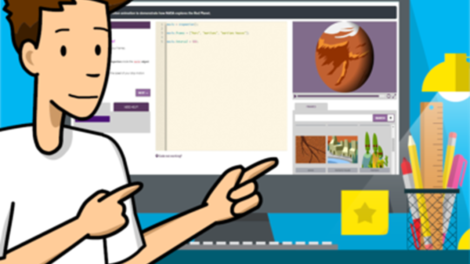CCSS.Math.Practice.MP4
Mathematically proficient students can apply the mathematics they know to solve problems arising in everyday life, society, and the workplace. In early grades, this might be as simple as writing an addition equation to describe a situation. In middle grades, a student might apply proportional reasoning to plan a school event or analyze a problem in the community. By high school, a student might use geometry to solve a design problem or use a function to describe how one quantity of interest depends on another. Mathematically proficient students who can apply what they know are comfortable making assumptions and approximations to simplify a complicated situation, realizing that these may need revision later. They are able to identify important quantities in a practical situation and map their relationships using such tools as diagrams, two-way tables, graphs, flowcharts and formulas. They can analyze those relationships mathematically to draw conclusions. They routinely interpret their mathematical results in the context of the situation and reflect on whether the results make sense, possibly improving the model if it has not served its purpose.
Creature Caverns Teacher Guide
Posted by jglassman on
Curse Reverse Teacher Guide
Posted by jglassman on
Projectile Investigation Lesson Plan: Projectile Motion
Posted by jglassman on
Computational Modeling Lesson Plan: Marvelous Models
Posted by jglassman on
Molecule Arrangement Lesson Plan: Crystal Cave
Posted by jglassman on

Digital Citizenship Creative Coding Lesson Plan
Posted by jglassman on

Newscast Lesson Plan
Posted by jglassman on

Meme Lesson Plan
Posted by jglassman on
Defeating Bacteria Lesson Plan: Antibiotic Resistance
Posted by jglassman on
Amplitude, Offset, Wavelength and Frequency Lesson Plan: Wave Combinator
Posted by jglassman on





